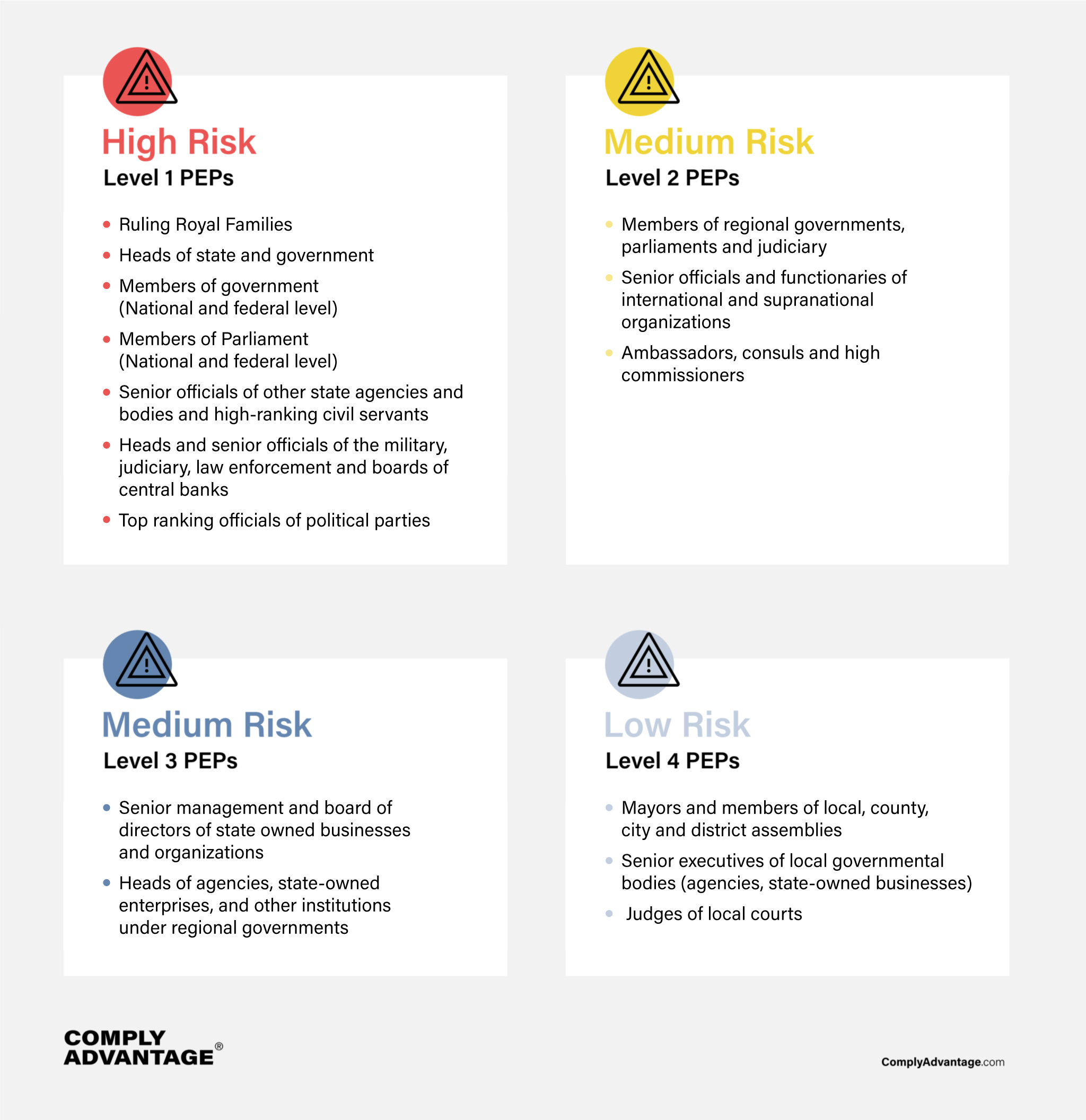Should I Participate in Bank Owned Life Insurance? (BOLI) can be beneficial for bolstering tax-advantaged assets and funding employee benefits. Evaluate your bank’s financial strategies and consult a financial advisor to decide if BOLI fits your objectives.
Many banks explore the option of investing in bank-owned life insurance (BOLI) as a strategic move. BOLI policies finance long-term employee benefits while providing tax-efficient earnings growth. Banks often use BOLI to offset the costs associated with retirement and death benefits.
The cash value growth within these policies is generally tax-deferred, potentially negatively impacting the bank’s return on assets (ROA). Understanding the implications and risks of BOLI is essential for an institution looking to manage its capital efficiently. Before proceeding, assessing the bank’s balance sheet, regulatory considerations, and the long-term commitment required is critical. Consulting with a financial advisor specializing in BOLI products ensures that the choice aligns with Tbank’s objectives and overall financial plan.
Introduction To Should I Participate in Bank Owned Life Insurance?
Imagine a tool helping banks secure their employees’ futures. That tool exists, and it’s called Bank-Owned Life Insurance (BOLI). It’s an investment bank used to insure its key employees. It helps with employee benefits and bolsters the bank’s financial health. Let’s explore the world of BOLI and why it could be an intelligent option for banks.
Brief History Of Boli
The roots of BOLI trace back to the 1980s. Banks sought new ways to fund employee benefits without hurting their bottom line. BOLI emerged as a solution. It made it possible for banks to fund retirement benefits more effectively. Over time, it became an essential strategy for managing bank capital.
How Boli Works
Banks buy life insurance policies for their eligible employees. The bank pays the premiums and is also the policy beneficiary. When an insured employee passes away, the bank receives the death benefit. This payout is often tax-free. These funds can cover retirement plans and other employee benefits. Beyond this, BOLI returns can boost a bank’s earnings.
BOLI is a win-win. Employees gain security at no cost. Banks improve their financial performance.

Potential Advantages Of Boli
Potential Advantages of BOLI
Exploring bank-owned life insurance (BOLI) can reveal several corporate benefits. This financial tool may cater to the company’s long-term needs. Each feature of BOLI brings unique perks. Let’s delve into the economic impacts of incorporating BOLI into corporate strategy.
Tax Benefits
BOLI offers enticing tax advantages. The growth of cash value within a BOLI policy is tax-deferred. Upon the policy’s maturity, the death benefits are usually income-tax-free. Corporations benefit from these aspects, which can lead to significant tax savings.
Corporate Asset Growth
- Enhanced Balance Sheet: BBOLI’s cash accrual strengthens a company’s balance sheet.
- Liquidity: Though designed for long-term needs, BOLI can offer some liquidity.
Stable Investment Returns
BOLI policies typically provide stable returns. This stability stems from lower-risk investment portfolios. Unlike stocks that can be volatile, BOLI returns are more predictable. This certainty is vital for long-term financial planning.
Considerations Before Participating
Before buying bank-owned life insurance, consider some key points. This will ensure that you make a smart decision for yourself and your business.
Assessing Financial Health
First, glance at your company’s financial stance. BOLI can affect balance sheets. Let’s break this down:
- Current Assets: Do you have enough? BOLI requires a significant upfront investment.
- Liabilities: Check debts. More liabilities mean more risks with additional commitments like BOLI.
- Emergency Reserve: Ensure you have funds set aside. BOLI should not deplete your safety net.
Use a simple formula to gauge readiness:
Financial Health = Assets - Liabilities + Emergency Reserve
Positive results suggest good financial health. This means BOLI might fit your company.
Compatibility With Business Goals
Align BOLI with your business aims. Check if it supports your long-term objectives. Remember these points:
| Business Goals | How BOLI Helps |
|---|---|
| Employee Benefits | BOLI can fund retirement benefits and more. |
| Revenue Growth | Interest from BOLI can become a profit source. |
| Stability | Cash value growth in BOLI policies adds financial stability. |
Each goal pairing with BBOLI’s perks suggests a good match. Deciding to get BOLI should echo your company’s vision.

Risks And Drawbacks
Exploring bank-owned life insurance (BOLI) means understanding its potential downsides. Knowing the risks helps investors make informed decisions. This section will highlight some notable concerns associated with BOLI.
Liquidity Concerns
BOLI can tie up funds for a long time. These policies, by nature, mean quick access to cash is not always possible. This can be a significant issue for some investors, mainly if the need for immediate capital arises.
Funds within a BOLI policy are not readily available for withdrawal without incurring costs. Early withdrawal may lead to substantial penalties, eroding the policy.
Regulatory Compliance
Regulation around BOLI remains complex and ever-changing. Banks must meet specific guidelines to stay compliant; if they don’t, they risk facing harsh consequences.
- Regular reviews and updates align with current regulations
- Non-compliance could have financial repercussions
Beneficiary Limitations
With BOLI, beneficiaries are typically limited to the employer. This means that the employee’s families do not see direct benefits.
| Benefit Type | Recipient |
|---|---|
| Death Benefit | Employer/Bank |
| Cash Value Access | Employer/Bank |
Policies are not flexible in shifting beneficiaries and offer no personal advantage to employees during their lifetime.
Case Studies
Exploring real-life instances can illuminate the benefits and risks of bank-owned life insurance (BOLI) investments. Case studies clearly show what works and doesn’t in BOLI investments.
Successful Boli Implementations
Diving into successful BOLI implementations shows us the highs of intelligent investing. Many companies have found financial stability and growth through BOLI.
- company leveraged BOLI for significant tax advantages. Their earnings blossomed without the tax burden.
- Industry B Corporation used BOLI returns to fund employee benefits. This led to high morale and the retention of talent.
| Business Type | Success Factor |
|---|---|
| Retail Bank | Increased Non-Interest Income |
| Insurance Agency | Boosted Shareholder Value |
Lessons From Boli Failures
Conversely, lessons from BOLI failures remind us to be cautious. Not all ventures into BOLI spell success.
- One company faced a public relations nightmare. They did not inform beneficiaries properly.
- Another misjudged the risks and suffered financial setbacks.
The key takeaways from these missteps are clear:
- Transparency is crucial.
- Risk assessment demands diligence.
- Legal compliance is non-negotiable.
Alternative Investment Options
Exploring investment avenues beyond bank-owned life Life Insurance (BOLI) is vital. Investors should consider their goals and risk tolerance. Here are some popular options that could align with various investment strategies:.
Mutual Funds
Mutual funds pool money from many people and invest it in bonds, stocks, and other assets. Professionally managed, these funds can reduce risk by diversifying. Investors gain access to a portfolio of investments with a single transaction, which can be an appealing option for those seeking to spread their risk across various sectors and companies.
- Wide variety to match investment goals
- Diversification reduces the impact of security’s poor performance
- Professionally managed, requiring less time and knowledge from the investor
Direct Investments
Direct investments allow individuals to buy directly into a company or asset. This includes purchasing stocks, bonds, or real estate. These options offer more control and potentially higher returns but come with increased risk.
- Stocks: Equity in a company with potential for growth and dividends
- Bonds: Loans to entities that pay back with interest over time
-
Real estate: Material possessions with potential for growth
When selecting direct investments, consider the long-term potential and liquidity needs.
Perform thorough research before committing your funds to ensure alignment with your investment objectives.

Decision-making Framework
Embarking on bank-owned life insurance (BOLI) may seem complex. A tailored decision-making framework can ensure your choices align with precise business needs and risk appetites. Careful consideration within this framework is vital for an informed verdict.
Evaluating Organizational Objectives
Identifying an organization’s core objectives forms the cornerstone of the decision-making process. Begin by asking:
- What financial ambitions does the organization strive to achieve?
- Is BOLI congruent with our corporate philosophy?
- Will participation in BOLI support future growth and stability?
The critical filter proposals must align with the BOLI firm’s goals.
Risk Tolerance Assessing the organization’s risk profile is fundamental in opting for BOLI. Conducting a risk tolerance assessment can shed light on key factors:
- Assess the level of comfort with potential market fluctuations.
- Determine if the organization can handle unexpected financial strains.
- Examine current assets and liabilities to gauge liquidity requirements.
A thorough risk analysis ensures financial decisions rest on solid ground.

Legal And Tax Implications
Exploring the realm of bank-owned life insurance (BOLI) carries essential legal and tax considerations. These implications shape your BOLI experience. They can affect your finances in significant ways. Let’s dive into these crucial aspects.
Compliance With Regulations
Understanding the legal framework for BOLI is critical. It’s crucial to stay within the boundaries set by regulators. With BOLI, banks must adhere to specific guidelines, including the Internal Revenue Service (IRS) and banking oversight policies.
- Interagency Statement on the Purchase and Risk Management of Life Insurance: Banks must follow this guidance to ensure proper risk management.
- IRS guidelines: They must also abide by the IRS rules on BOLI to maintain tax compliance.
- Notification and Consent Requirements: Banks must obtain consent from insured parties before initiating a BOLI policy.
Adhering to these regulations ensures the insurance remains legitimate and beneficial.
Understanding The Tax Position
The tax treatment of BOLI is advantageous for banks. It offers a tax-friendly solution for offsetting the costs of employee benefits. But, one must grasp the nuances to leverage these benefits.
| Tax Benefit | Description |
|---|---|
| Tax-deferred Growth | BOLI policy earnings grow tax-deferred, meaning tax is not due until a withdrawal. |
| Death Benefits | Typically, their income is tax-free from the bank, bolstering their financial position. |
| Interest Expense Deductions | Banks can often deduct the interest on loans taken against the cash value of BOLI policies. |
Understanding these tax positions helps banks maximize the value of their BOLI investments. Seek professional assistance to manage the difficulties.
Expert Opinions On Boli
Understanding Bank-Owned Life Insurance (BOLI) is essential for business leaders and financial professionals. Balancing perspectives from financial analysts and insurance advisors helps clarify the benefits and considerations of BOLI policies. With their insights, you can assess whether BOLI aligns with your company’s economic strategy.
Financial Analyst Perspectives
Financial analysts typically scrutinize BOLI’s implications. They emphasize its potential to bolster a company’s company sheet, note BOLI’s tax advantages, affirm that the cash value growth within a BOLI policy is tax-deferred, and suggest that BOLI can also lead to tax-free death benefits.
Experts break down the revenue components and highlight the non-direct returns that BOLI may contribute:
- a steady income stream through the policy’s policies.
- Offsetting employee benefit costs by utilizing BOLI proceeds.
- Enhancing the bank’s financial health.
Financial analysts urge a thorough analysis before investment, recommend comparing BOLI with alternative options, and underline the need for professional guidance to navigate regulatory requirements.
Insurance Advisor Insights
Meanwhile, insurance advisors focus on a policy and suitability. Advisors validate using BOLI as a risk management tool and investing in a company’s leadership. The company understands the importance of policy design to match the bank’s specific needs.
Their insights include:
- Choosing the suitable insurance carrier for long-term stability.
- Understanding the impact on employee retention and recruitment.
- The importance of transparency and communication with stakeholders.
Insurance advisors advocate for regular policy reviews. Continual analysis ensures that BOLI remains aligned with evolving business objectives. They stress the necessity of collaborating with experts to customize BOLI strategies effectively.
how to buy bank-owned life insurance
To buy bank-owned life insurance (BOLI), a bank typically goes through a comprehensive process involving several steps. First, the bank assesses its insurance needs and financial goals, determining how BOLI can be
utilized to offset employee benefit costs and enhance earnings. Next, the bank consults with a specialized insurance broker or consultant to explore various policy options and insurers. The bank then selects suitable
policies based on factors such as the financial strength of the insurer, policy features, and potential returns. After selecting a policy, the bank applies for the insurance, often needing to provide detailed information about the
covered employees. Once the policy is approved and issued, the bank funds the insurance premiums, usually using assets from its own balance sheet. Ongoing management and periodic reviews of the policy are essential to ensuring it continues to meet the bank’s objectives and complies with regulatory requirements.

how to buy bank-owned life insurance
Should i participate in bank-owned life insurance in California?
Participating in bank-owned life insurance (BOLI) in California can be a beneficial strategy, but it requires careful consideration. Banks are the main users of BOLI to reduce the cost of employee benefits and can improve
the bank’s financial stability. For employees, participating in BOLI may offer additional financial security through benefits such as retirement plans or death benefits. However, it is crucial to evaluate the financial strength
and reputation of the bank and the insurance provider, as well as the specific terms and benefits of the policy. Additionally, consider any tax implications and regulatory compliance issues, particularly given California’s
specific legal and regulatory environment. Consulting with a financial advisor or insurance expert can help determine if participating in BOLI aligns with your financial goals and risk tolerance.

Should i participate in ban-owned life insurance in california
Frequently Asked Questions On Should I Participate In Bank-Owned Life Insurance
How Do I Invest In Bank-Owned Life Insurance?
To invest in bank-owned life insurance (BOLI), contact a financial advisor or the bank’s BOLI department. Review the bank’s security criteria and investment terms before investing. Always consult a professional for personalized advice.
What Does Bank-Owned Life Insurance Represent?
Bank-owned life Insurance (BOLI) is a policy that banks purchase for their key executives, with the bank as the beneficiary. This type of insurance serves as a tax-efficient method of offsetting the cost of employee benefits.
How Does Bank-Owned Life Insurance Benefit The Employee?
Bank-owned life insurance (BOLI) typically doesn’t provide direct benefits; instead, it’s a policy that companies purchase to protect against financial loss in the event of premature death.
Can I Purchase Boli?
Boli, a traditional West African grilled plantain snack, can be purchased at local food markets or online specialty stores.
Conclusion
Participating in bank-owned life Life Insurance (BOLI) can be a strategic move for the informed investor seeking diversification and tax advantages. Yet, it remains imperative to consult a financial advisor to tailor decisions to your unique situation. BOLI’s complexity requires diligence and understanding before commitment.
Pursue this avenue with caution and clarity for potential benefits to your financial portfolio.

Hello and welcome to HealthcareInsuranceNews.com! I’m Emon Sheikh, and I’m thrilled to be your guide through the intricate world of healthcare insurance.
As a dedicated blog writer focusing on healthcare insurance, I’m passionate about helping individuals navigate the complexities of insurance policies, understand their coverage options, and make informed decisions to protect their health and finances.
With a background in Life Insurance, Travel Insurance, Medical Insurance, Pet Insurance, Students Insurance, Cancer Insurance, I bring a wealth of knowledge and insights to my writing. Through my blog posts, I aim to demystify insurance jargon, provide practical tips, and keep you up-to-date on the latest developments in the healthcare insurance landscape.
Whether you’re a seasoned insurance professional, a healthcare provider, or someone simply seeking guidance on finding the right insurance plan, I’m here to provide valuable information and support. Together, let’s unravel the complexities of healthcare insurance and empower you to take control of your healthcare journey.
Thank you for visiting HealthcareInsuranceNews.com, and I look forward to sharing this journey with you!
Best regards,
Emon Sheikh
